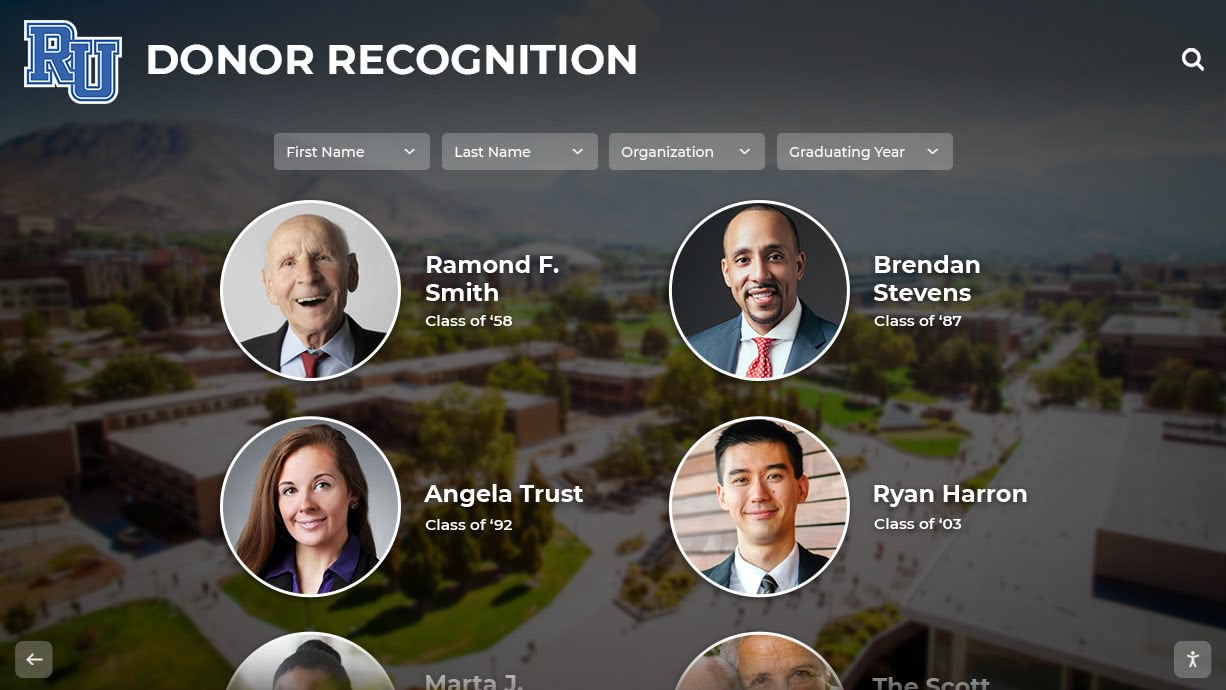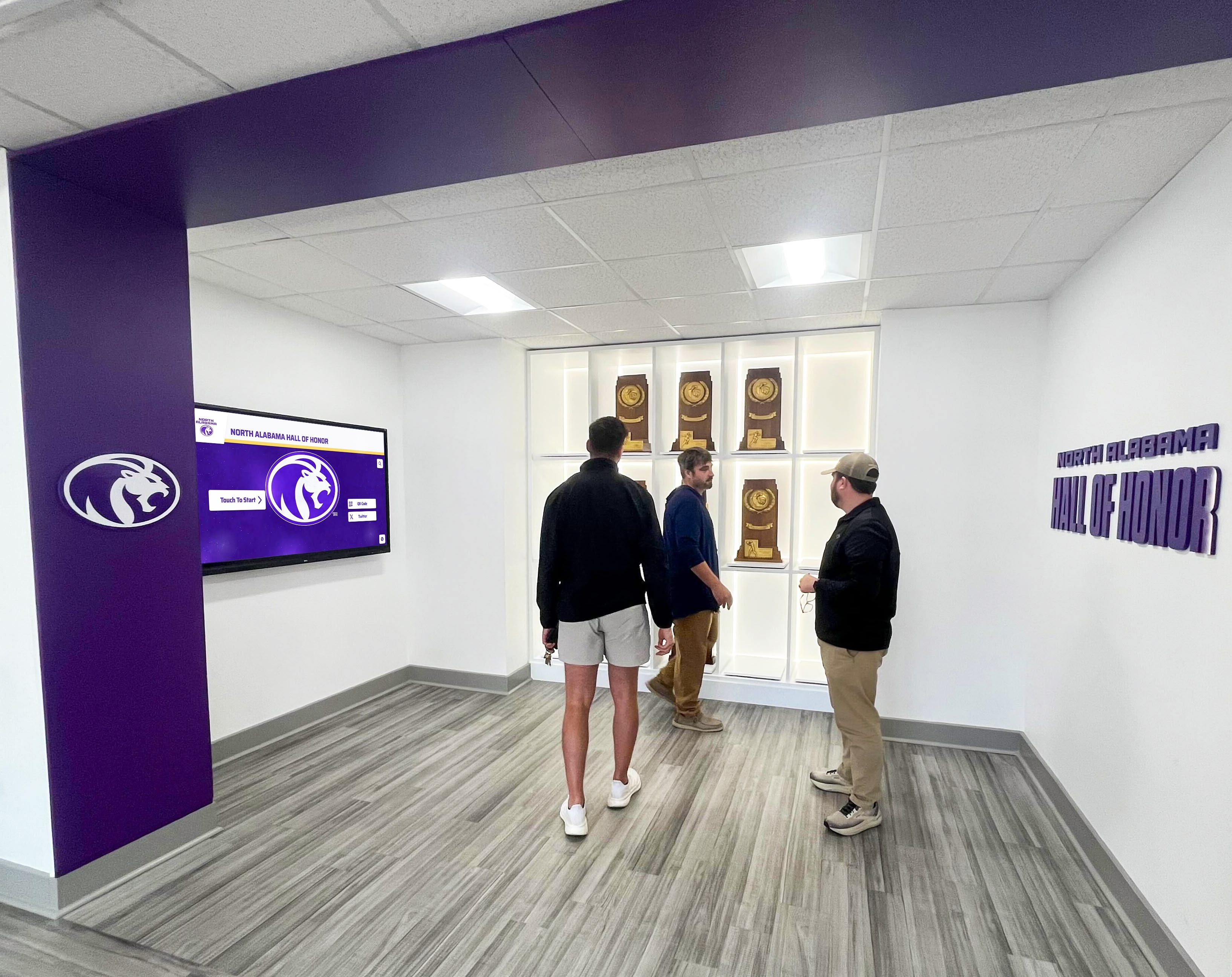Every year, thousands of history students across the United States and internationally discover opportunities to join Phi Alpha Theta, the world’s largest honor society dedicated specifically to the study of history. For students passionate about historical research, those pursuing careers in education or academia, and anyone dedicated to understanding humanity’s past, Phi Alpha Theta membership represents significant recognition of scholarly achievement and opens doors to resources, funding, and connections that support continued academic and professional success.
Yet many eligible students remain unaware that their college or university hosts a Phi Alpha Theta chapter, missing opportunities for recognition, funding, and professional development available only to members. Others attend institutions without chapters and don’t realize they could initiate the process of establishing one. Some history departments overlook the value of prominently celebrating their Phi Alpha Theta members, failing to inspire younger students or recognize scholarly achievement as visibly as athletic or artistic accomplishments.
This comprehensive guide addresses all aspects of finding and connecting with Phi Alpha Theta chapters. Whether you’re a history student exploring membership eligibility, a faculty advisor seeking to establish a new chapter, a department chair looking to better recognize honor society members, or a university administrator interested in celebrating academic excellence, you’ll discover practical information, actionable strategies, and modern approaches to maximizing the impact of this prestigious academic honor.
Understanding Phi Alpha Theta: History’s Premier Honor Society
Before exploring how to find chapters, understanding what Phi Alpha Theta represents and offers helps contextualize why membership matters for history students and departments.
The Origins and Mission of Phi Alpha Theta
Phi Alpha Theta (ΦΑΘ) was founded in 1921 at the University of Arkansas by Professor Nels Cleven, who envisioned an organization that would encourage excellence in the study and teaching of history while recognizing and rewarding outstanding achievement among students passionate about historical inquiry.
From Single Chapter to International Organization:
What began as a small honors club at one university has grown into an international organization with:
- Over 970 active chapters at colleges and universities across the United States and internationally
- More than 400,000 members inducted since the society’s founding
- Approximately 9,000 new members joining annually through chapter initiations
- Regional conferences held across the country bringing together student historians
- Biennial conventions providing national networking and scholarship presentation opportunities
- An endowed research fund supporting student and faculty historical research
This growth reflects both the quality of the organization and the enduring value history departments and students find in formal recognition of academic excellence in historical studies.

Distinctive Focus on Historical Studies:
Unlike general academic honor societies recognizing achievement across disciplines, Phi Alpha Theta serves exclusively students and scholars of history. This specialized focus creates communities united by shared passion for historical inquiry, connecting members with peers, faculty, and professionals who share their specific academic interests and career goals rather than broad interdisciplinary groups.
The society’s mission emphasizes encouraging excellence in historical study through recognition of achievement, stimulating historical research and publication among undergraduate and graduate students, providing resources supporting continued historical education, and creating networks connecting historians across institutions, generations, and specializations.
Phi Alpha Theta’s Relationship to Academic Departments
Phi Alpha Theta operates through local chapters housed within history departments at colleges and universities, creating organic connections between honor society activities and departmental academic programs.
Faculty-Student Collaborative Model:
Each chapter functions through partnership between faculty advisors and student members:
- Faculty advisors, typically history professors, provide institutional knowledge, guidance, and continuity as student membership turns over
- Student officers elected from membership organize events, coordinate activities, and lead chapter initiatives
- Departments provide meeting spaces, administrative support, and connections to broader institutional resources
- Chapters operate with considerable autonomy, shaping their specific activities to reflect local interests and department culture
This model ensures chapters remain academically grounded while allowing student leadership and initiative to flourish.
Integration with Department Recognition:
Forward-thinking history departments integrate Phi Alpha Theta recognition into broader efforts celebrating student achievement. Progressive approaches include featuring Phi Alpha Theta inductees alongside other departmental honors, creating visible displays showcasing honor society members across graduating classes, incorporating induction ceremonies into department events like honors convocations or awards banquets, publicizing member achievements through department websites and communications, and connecting honor society membership to other opportunities like teaching assistantships or research positions.
When departments actively celebrate Phi Alpha Theta membership rather than treating it as purely administrative credential, they inspire younger students to pursue academic excellence while validating the accomplishments of those who achieve membership.
How to Find Phi Alpha Theta Chapters: Step-by-Step Guide
Locating the Phi Alpha Theta chapter at your institution or identifying institutions with chapters involves several straightforward approaches.
Using the Official Chapter Locator
The most authoritative source for finding Phi Alpha Theta chapters is the organization’s official Chapter Locator tool hosted on their national website.
Accessing the Chapter Locator:
Navigate to the Phi Alpha Theta website at phialphatheta.org and access their Chapter Locator page. This searchable directory allows you to:
- Browse chapters by geographic region and state
- Search for specific institutions by name
- View chapter designations (each chapter has a unique Greek letter designation)
- Access basic contact information for active chapters
- Identify recently installed chapters versus long-established ones
The directory includes only currently active chapters in good standing with the national organization, ensuring information reflects genuine opportunities for membership rather than dormant or disbanded chapters.
Understanding Chapter Designations:
Each Phi Alpha Theta chapter receives a unique designation using Greek letters. For example:
- Alpha Chapter at the University of Arkansas (the founding chapter)
- Epsilon-Upsilon Chapter at Pennsylvania State University
- Zeta Chapter at Ohio State University
- Gamma Mu Chapter at Georgetown University
These designations indicate the order chapters were chartered and provide distinctive identities for local chapters. When researching or contacting chapters, using official designations demonstrates familiarity with organizational structure and traditions.

Contacting Your History Department Directly
Whether or not you find your institution listed in the official directory, your history department remains the best local resource for chapter information.
Why Direct Department Contact Works Best:
Chapter contact information in national directories may become outdated as faculty advisors change or student officers graduate. Your history department can provide:
- Current faculty advisor contact information
- Meeting schedules and upcoming induction dates
- Specific membership requirements your chapter may have beyond national minimums
- Application processes and deadlines
- Connections to current student chapter officers
- Information about chapter activities, events, and opportunities
Most departments prominently feature Phi Alpha Theta information on websites, in student lounges, or during advising sessions. If not immediately visible, any history faculty member or department administrator can direct you to the appropriate advisor.
Approaching Faculty About Membership:
When contacting faculty advisors about Phi Alpha Theta membership, come prepared with specific questions:
- What are the specific eligibility requirements for our chapter?
- When does our chapter typically hold induction ceremonies?
- What application materials are needed and when are they due?
- Does the chapter organize events, conferences, or special programs?
- Are there additional local chapter fees beyond the national initiation fee?
Faculty advisors appreciate students who demonstrate genuine interest and initiative rather than treating membership as another credential to collect without engagement.
Exploring Nearby Institutions if Your School Lacks a Chapter
Not all colleges and universities host Phi Alpha Theta chapters. Smaller institutions, community colleges, or schools with limited history programs may lack chapters due to size, resource constraints, or insufficient student interest.
Transfer-Friendly Membership Policies:
Phi Alpha Theta membership remains with you for life regardless of where you complete your degree. Students who:
- Begin at community colleges before transferring to four-year institutions
- Transfer between universities mid-degree
- Complete undergraduate degrees at schools without chapters before attending graduate programs at institutions with chapters
All maintain eligibility to join through any chapter at any institution where they meet membership requirements, even if their degree was completed elsewhere.
Considering Chapter Establishment:
If you’re passionate about history and attend an institution without a Phi Alpha Theta chapter, consider investigating whether starting one might be feasible. We’ll explore this process in detail in a later section, but knowing that students and faculty can initiate new chapters empowers you to create opportunities rather than simply accepting their absence.
Phi Alpha Theta Membership Requirements: Are You Eligible?
Understanding eligibility requirements helps determine whether you qualify for membership and what you need to accomplish to become eligible if not currently qualified.
Requirements for Undergraduate Students
Phi Alpha Theta maintains specific academic standards for undergraduate membership ensuring the organization recognizes genuine scholarly achievement.
Academic Coursework Requirements:
Undergraduate students must complete a minimum of 12 semester hours in history coursework. This typically represents four history courses, though institutions on quarter systems or with different credit hour structures may calculate equivalency differently.
Qualifying coursework includes:
- Classes completed at your current institution
- Transfer credits from other colleges or universities
- Advanced Placement (AP) credit for history courses
- Dual enrollment history courses completed during high school
- Online history courses from accredited institutions
Students do not need to be history majors to qualify. Many chapters include members majoring in political science, education, pre-law, international studies, or other fields who have taken sufficient history coursework to meet requirements. This flexibility recognizes that passion for history and academic excellence in historical studies aren’t limited to those formally majoring in the discipline.
Grade Point Average Standards:
Phi Alpha Theta requires:
- Minimum GPA of 3.1 in history coursework
- Minimum overall GPA of 3.0 across all courses
- Standing in the top 35% of the student’s class
These standards ensure membership recognizes substantial academic achievement rather than minimal competency. The distinction between history GPA and overall GPA acknowledges that excellence in one’s area of passion deserves recognition even if performance in required courses outside the major is solid but not exceptional.

Timing of Application:
Students typically become eligible after completing sophomore or junior year, once they’ve accumulated sufficient history credits. However, requirements about class standing mean that:
- First-semester freshmen cannot typically qualify (insufficient class standing data)
- Transfer students may qualify immediately if they arrive with sufficient credits and GPA
- Non-traditional students returning to complete degrees qualify if they meet academic standards
Chapters typically hold induction ceremonies once or twice annually, often in fall and spring semesters. Students who become eligible mid-semester usually join during the next scheduled induction rather than through individual ceremonies.
Requirements for Graduate Students
Graduate student membership recognizes advanced scholarly work and preparation for professional careers in history, teaching, or related fields.
Graduate Academic Standards:
Graduate students should have:
- Completed a minimum of 12 semester hours toward a Master’s degree in history
- Maintained a GPA of at least 3.5 in graduate coursework
- Completed approximately 30% of residence requirements for the Master’s degree
These higher standards reflect the more specialized nature of graduate study and the expectation that students at this level demonstrate exceptional scholarly ability and commitment.
Doctoral Students and Advanced Degrees:
The same standards apply to doctoral students, though many pursue membership during Master’s programs if they continue from Master’s to doctoral study. Students who complete Master’s degrees before pursuing doctorates at different institutions may join chapters at their doctoral institutions even if they were members during Master’s programs, though this typically isn’t necessary since membership is lifelong.
Faculty and Professor Membership
Phi Alpha Theta welcomes faculty members, creating chapters that unite students, junior faculty, and senior professors in shared communities of historical scholarship.
Automatic Faculty Eligibility:
Faculty members above the rank of instructor who teach history automatically qualify for membership. This includes:
- Assistant professors
- Associate professors
- Full professors
- Emeritus faculty who remain active in departments
Adjunct instructors, visiting faculty, and graduate teaching assistants typically don’t qualify unless they meet student membership requirements, though individual chapters may have specific policies addressing these situations.
Faculty Membership Benefits:
While faculty members don’t need credentials or recognition from an undergraduate honor society, membership provides:
- Opportunities to mentor student members and guide chapter activities
- Connections to colleagues at other institutions through conferences
- Visibility for research through Phi Alpha Theta publications
- Eligibility for faculty research grants and awards
- Formal recognition of commitment to teaching and mentoring
Faculty membership strengthens chapters by creating intergenerational scholarly communities rather than purely student organizations.
Benefits of Phi Alpha Theta Membership
Understanding what membership provides helps students evaluate whether pursuing membership aligns with their academic and professional goals.
Academic Recognition and Credentials
Phi Alpha Theta membership provides tangible recognition of scholarly achievement valuable throughout academic and professional careers.
Transcript and Resume Credentials:
Members receive:
- Lifetime membership credential appropriate for resumes and CVs
- Notation on academic transcripts at many institutions
- Membership certificates suitable for display
- Access to member certificates and cords for graduation ceremonies
For students pursuing graduate study, professional school, or careers where academic achievement matters, Phi Alpha Theta membership signals serious commitment to scholarship and excellence in specific disciplinary study. Graduate admissions committees, particularly in history programs, recognize and value Phi Alpha Theta membership as evidence of genuine scholarly ability and potential for advanced research.
Distinction Among Academic Honors:
While many students accumulate general academic honors like Dean’s List recognition, Phi Alpha Theta represents discipline-specific achievement demonstrating not just good grades but sustained excellence in particular field of study. This distinction becomes particularly valuable when applying for positions, programs, or opportunities specifically related to history, education, or research.

Scholarship and Research Funding Opportunities
Phi Alpha Theta provides substantial financial support for member research, conference travel, and academic development through various awards and grants.
Undergraduate and Graduate Scholarships:
The national organization and many regional chapters offer competitive scholarships recognizing exceptional student achievement and supporting continued study. Award amounts vary but can reach several thousand dollars, providing meaningful support for tuition, research expenses, or graduate study preparation.
Research and Travel Grants:
Members can apply for funding supporting:
- Archival research requiring travel to specialized collections
- Conference attendance presenting original research
- Summer research projects exploring historical questions
- Thesis and dissertation research expenses
- Publication costs for student-authored historical works
These opportunities often receive far fewer applications than university-wide competitive funding, giving Phi Alpha Theta members better odds of receiving support. For students pursuing research-intensive careers or considering graduate study, these grants provide crucial early experience with competitive funding processes.
Best Paper Awards and Recognition:
Both regional and national conferences feature competitive paper presentations where student members share original research. Awards recognize outstanding scholarship, providing both financial rewards and prestigious credentials strengthening graduate school applications or early career resumes.
Publication Opportunities
Phi Alpha Theta operates several publication outlets specifically for student historical research, addressing the challenge undergraduate and graduate students face in finding venues to publish scholarly work.
The Historian Journal:
The society publishes The Historian, a respected academic journal featuring historical scholarship. While primarily publishing established scholars, the journal includes sections specifically for student research, providing opportunities rarely available through other academic journals that typically reject student submissions regardless of quality.
Regional Journals:
Many Phi Alpha Theta regions publish their own journals featuring member research. These provide more accessible publication opportunities while maintaining academic rigor and peer review, giving students valuable experience with scholarly publication processes before competing for space in top-tier academic journals.
Historiae Journal:
Some chapters and regions produce Historiae, collections of outstanding student papers presented at conferences or written for advanced courses. Publication in these collections provides tangible evidence of research capability valuable for graduate school applications or academic job searches.
Networking and Professional Connections
Perhaps Phi Alpha Theta’s most lasting value comes from connections members make with fellow historians, faculty mentors, and established professionals in history and related fields.
Regional and National Conferences:
Phi Alpha Theta hosts numerous regional conferences annually and a biennial national convention. These events provide:
- Opportunities to present original research to supportive scholarly audiences
- Exposure to historical research across subfields, methodologies, and time periods
- Networking with history students from other institutions
- Connections with faculty beyond your home institution who may become graduate school advisors, dissertation committee members, or professional colleagues
- Experience with academic conference culture crucial for graduate study and professional careers
Students attending their first Phi Alpha Theta conference often report surprise at the supportive, intellectually stimulating atmosphere markedly different from competitive academic environments they may have experienced.
Mentorship Opportunities:
Membership creates natural mentorship connections. Faculty advisors often take special interest in developing talented student members, providing:
- Guidance on graduate school selection and applications
- Connections to alumni working in history-related careers
- Recommendations for scholarships, grants, and opportunities
- Research collaboration invitations
- Professional development advice and career counseling
Many successful historians credit Phi Alpha Theta faculty mentors with crucial support during formative stages of academic development.
Lifetime Professional Network:
Membership extends far beyond graduation. Phi Alpha Theta alumni frequently maintain connections established through the organization, leading to:
- Job opportunities and professional referrals
- Collaborative research projects years after graduation
- Continued intellectual community for those whose careers move outside academia
- Mentorship opportunities where established professionals guide younger members
For a one-time initiation fee of $50, lifetime membership and access to these enduring networks represents remarkable value.
Starting a New Phi Alpha Theta Chapter at Your Institution
If your college or university lacks a Phi Alpha Theta chapter but maintains an accredited history program, establishing a new chapter is entirely feasible with faculty support and student interest.
Eligibility Requirements for New Chapters
Phi Alpha Theta charters chapters only at institutions meeting specific criteria ensuring organizational quality and sustainability.
Institutional Accreditation Requirements:
New chapters are established exclusively at fully-accredited four-year colleges and universities. This requirement ensures:
- Academic programs meet recognized quality standards
- Institutions maintain stable operational status
- Degrees carry appropriate credibility and recognition
- History programs provide sufficient rigor to support honor society membership standards
Community colleges, technical schools, and unaccredited institutions cannot charter chapters, though students from these institutions may join through chapters at transfer institutions where they complete bachelor’s degrees.
History Program Requirements:
While specific minimum requirements aren’t publicly detailed, institutions seeking chapters typically need:
- Established history departments or programs with multiple full-time faculty
- History major and/or minor programs attracting sufficient students
- Upper-level history coursework beyond survey requirements
- Demonstrated commitment to history education and student development
Very small programs with single-faculty history offerings may struggle to meet these standards, though interested institutions should contact the national office directly rather than self-selecting out of consideration.

The Chapter Application Process
Establishing new Phi Alpha Theta chapters follows a structured application process managed by the national organization.
Application Deadlines:
The national organization accepts new chapter applications twice annually:
- March 1 deadline: For chapters seeking fall semester installation
- October 1 deadline: For chapters seeking spring semester installation
This timeline allows several months for application review, approval processing, and installation preparation. Faculty advisors should plan accordingly, beginning the application process well before desired installation dates.
Initiating the Application:
Chapter establishment must be initiated by history department faculty members rather than students, ensuring institutional commitment and faculty advisor availability. The process typically includes:
- Faculty member contacting the national office expressing interest in establishing a chapter
- Completing formal application materials detailing the institution, history program, and proposed membership
- Demonstrating sufficient student interest by identifying potential founding members
- Paying required fees for chapter establishment and charter
- Coordinating with the national organization on installation ceremony planning
Installation Ceremonies:
Once approved, new chapters are formally installed through ceremonies conducted by national organization representatives or established chapter members from nearby institutions. Installation ceremonies typically include:
- Formal chartering presenting the chapter with official recognition
- Induction of founding members (students and faculty)
- Recognition of faculty advisor and institutional support
- Celebration bringing together history department, university administration, students, and families
These occasions create meaningful departmental events celebrating academic excellence and history program vitality. Universities can enhance installations through recognition displays highlighting history program achievements and honor society member accomplishments.
Building Sustainable Chapter Operations
Successfully establishing a chapter requires planning beyond initial installation, ensuring the chapter remains active and valuable for future student generations.
Faculty Advisor Selection:
Chapters depend heavily on dedicated faculty advisors who:
- Provide continuity as student officers graduate and new members join
- Navigate university administrative requirements
- Connect chapters to departmental resources and support
- Mentor student leaders in organizational management
- Maintain communication with the national organization
Departments should select advisors genuinely committed to student mentorship and willing to invest time in chapter development rather than treating the role as perfunctory service obligation.
Establishing Chapter Traditions:
New chapters benefit from establishing distinctive traditions that:
- Create identity and culture unique to the local chapter
- Provide continuity connecting members across graduating classes
- Build enthusiasm and engagement beyond credential collection
- Integrate the chapter into broader department culture and activities
Successful traditions might include annual lectures by distinguished historians, spring research symposia showcasing member papers, community service projects applying historical knowledge, alumni panels connecting current students with history graduates in various careers, or social events building community among history students.
Sustaining Membership Recruitment:
Chapters flourish when departments actively promote membership rather than assuming eligible students will automatically seek out opportunities. Effective recruitment strategies include:
- Announcing membership opportunities during history classes
- Displaying Phi Alpha Theta information in department spaces
- Recognizing new inductees during department events
- Featuring member achievements on department websites and communications
- Connecting membership to other opportunities like research assistantships or teaching positions
When departments treat Phi Alpha Theta membership as prestigious achievement rather than administrative formality, students respond with greater interest and engagement.
Celebrating Phi Alpha Theta Membership Through Modern Recognition
History departments that visibly celebrate academic honors including Phi Alpha Theta membership inspire current students while validating member achievements. Modern recognition solutions transform how departments showcase scholarly excellence.
The Recognition Challenge for Academic Honors
Athletic achievements receive prominent display through trophy cases, banners, and recognition walls throughout campus facilities. Artistic accomplishments gain visibility through performances, exhibitions, and public showcases. Academic honors, despite representing equally significant achievement, often receive minimal recognition beyond transcript notations and brief ceremony mentions.
Why Academic Recognition Matters:
Visible recognition of academic achievement serves multiple purposes:
- Inspires younger students by making scholarly excellence visible and valued
- Validates hard work and dedication of students earning honors
- Communicates departmental values prioritizing academic achievement
- Attracts prospective students seeking rigorous academic environments
- Engages alumni maintaining connections to their academic communities
- Demonstrates to university administration the vitality and success of history programs
Traditional approaches to academic recognition—printed honor rolls, annual award ceremonies, or static plaques—provide some visibility but limited engagement compared to dynamic recognition of athletic or artistic achievements.

Digital Recognition Solutions for Honor Societies
Modern interactive displays provide history departments with powerful tools for celebrating Phi Alpha Theta members alongside other academic achievements, departmental awards, and scholarly accomplishments.
Unlimited Recognition Capacity:
Physical plaques and honor boards face inevitable space constraints. After several years, departments must choose between maintaining recognition for historical members or making room for new inductees. Digital recognition systems eliminate these constraints entirely by providing:
- Unlimited storage for members across all graduating classes
- Complete historical archives documenting decades of chapter history
- Individual profiles for every member rather than simple name lists
- Search and filter capabilities allowing visitors to explore specific years, degree levels, or members
- Preservation of information that would otherwise be lost as physical plaques deteriorate or are removed
This comprehensive capacity ensures current and future students can explore complete chapter histories, discovering members who graduated decades ago and connecting with multi-generational traditions of scholarly excellence.
Multimedia Storytelling:
Static plaques list names and graduation years. Digital displays enable richer storytelling through:
- Member photos bringing personality to achievements
- Research interests and thesis topics showcasing scholarly work
- Post-graduation updates revealing career trajectories
- Faculty advisor perspectives on member contributions
- Conference presentations and publication accomplishments
- Awards, grants, and scholarships received
This depth transforms recognition from mere credential listing into compelling narratives inspiring current students while celebrating individual member achievements comprehensively.
Dynamic Content Management:
Solutions like Rocket Alumni Solutions provide intuitive content management enabling departments to easily update recognition as new members join, alumni achieve professional milestones, or chapter activities create new content worth celebrating. Cloud-based administration allows updates from any device, accommodating busy faculty schedules without requiring technical expertise or IT support.
Integrating Multiple Recognition Categories
Comprehensive academic recognition displays typically celebrate various achievements rather than exclusively Phi Alpha Theta membership, creating complete pictures of department excellence.
Complementary Academic Honors:
History departments might integrate:
- Phi Alpha Theta honor society membership
- Departmental honors, awards, and distinctions
- Undergraduate research grant recipients
- Thesis and capstone project authors
- Teaching assistant and peer tutor recognition
- Conference presentation participants
- Publication achievements
- Graduate school admissions and prestigious fellowship recipients
When departments showcase the full spectrum of student scholarly achievement, recognition displays become destinations attracting regular traffic from prospective students, current majors, alumni visitors, and university community members curious about history program accomplishments.
Alumni Achievement Updates:
Interactive displays enable departments to maintain ongoing connections with graduates by featuring:
- Career updates revealing diverse paths history graduates pursue
- Advanced degree completions and continuing education
- Professional achievements and leadership positions
- Community service and civic engagement
- Publications, speaking engagements, and professional recognition
- Testimonials about how history education influenced careers and lives
These alumni features provide current students with inspiration and insight about opportunities history degrees enable while engaging graduates who appreciate ongoing connection to their academic departments. Solutions supporting sustained alumni engagement strengthen department communities across generations.
Strategic Display Placement
Recognition effectiveness depends partly on placement ensuring regular visibility rather than installation in isolated locations receiving minimal traffic.
High-Traffic Department Locations:
Optimal placement includes:
- Main department hallways where students pass daily
- Outside faculty offices where advisees wait for appointments
- Department lounges where students study and socialize
- Main entrances where visitors first encounter history departments
- Near classrooms where students gather before and after classes
Thoughtful integration of recognition displays into hallway renovations and department space improvements ensures academic achievement receives visibility comparable to athletic and artistic accomplishments throughout campus facilities.
University-Wide Recognition Opportunities:
Beyond history departments, recognition displays in broader campus locations extend visibility:
- Library lobbies celebrating scholarly achievement across disciplines
- Student union spaces showcasing diverse student excellence
- Administrative building lobbies where prospective students and families visit
- Campus welcome centers providing information to visitors
When honor society membership gains university-wide visibility, it elevates perception of academic achievement while providing history departments with institutional recognition for program quality.
Maximizing Your Phi Alpha Theta Experience
Membership provides maximum value when students actively engage rather than treating it as passive credential to list on resumes.
Participating in Chapter Activities
Local chapters organize various activities providing opportunities for intellectual engagement, community building, and skill development.
Research Presentations and Academic Colloquia:
Many chapters host regular gatherings where members present research papers, thesis projects, or historical analyses. These sessions provide:
- Safe environments for practicing academic presentations before high-stakes conference submissions
- Feedback from peers and faculty improving research quality
- Exposure to historical subfields and methodologies beyond your specific interests
- Development of critical analysis skills through engaging with others’ research
Even if not presenting yourself, attending presentations builds intellectual community and broadens historical knowledge beyond coursework requirements.
Social and Community-Building Events:
Phi Alpha Theta chapters aren’t purely academic forums. Many organize social events including:
- Welcome gatherings for new members
- End-of-semester celebrations
- Historical site visits and educational trips
- Film screenings and book discussions
- Community service projects applying historical knowledge
- Joint events with chapters at nearby institutions
These activities build relationships and community among history students, creating peer networks supporting academic success and professional development.

Leadership Opportunities:
Members can run for chapter officer positions including president, vice president, secretary, or treasurer. These roles provide:
- Leadership experience valuable for resumes and graduate school applications
- Event planning and organizational management skills
- Budget administration experience
- Collaboration with faculty advisors and university administrators
- Opportunities to shape chapter direction and activities
For students concerned about lack of leadership experience outside classroom contexts, chapter officer roles provide accessible entry points to organizational leadership.
Attending Regional and National Conferences
Phi Alpha Theta conferences represent highlight experiences for many members, providing exposure to broader historical communities beyond home institutions.
Benefits of Conference Attendance:
Students attending conferences gain:
- Experience presenting research to audiences beyond professors who assigned projects
- Exposure to cutting-edge historical research across subfields
- Networking with students from other institutions who share intellectual interests
- Familiarity with academic conference culture crucial for graduate study
- Travel opportunities visiting different regions and historical sites
- Credentials strengthening graduate school applications and CVs
Many students report that presenting at their first Phi Alpha Theta conference represents the moment they began viewing themselves as genuine historians rather than simply history students.
Funding Conference Attendance:
The $50-$70 cost of conference registration plus travel and accommodation expenses can challenge student budgets. Funding sources include:
- Chapter budgets covering some or all costs for presenting members
- University student government organizations providing conference travel grants
- History department funds supporting student professional development
- Phi Alpha Theta travel grants and scholarships
- Research offices funding students presenting original scholarship
Students shouldn’t assume conference attendance is financially impossible without exploring these funding sources. Faculty advisors can typically direct students toward available resources.
Applying for Awards and Scholarships
Phi Alpha Theta offers numerous competitive awards recognizing scholarly achievement and supporting continued research. While competitive, application pools are far smaller than university-wide scholarship competitions, giving members better odds of success.
Types of Available Awards:
Members can apply for:
- Undergraduate and graduate scholarships for continuing education
- Best paper awards at regional and national conferences
- Research grants supporting archival work or field research
- Publication awards recognizing outstanding student historical writing
- Regional awards specific to particular Phi Alpha Theta regions
Award amounts range from a few hundred dollars for best paper recognition to several thousand dollars for major scholarships. Even smaller awards provide valuable resume credentials and validation of scholarly work.
Maximizing Application Success:
Competitive applications typically feature:
- Carefully proofread materials free from errors
- Clear articulation of research questions and significance
- Demonstration of feasibility and appropriate methodology
- Strong letters of recommendation from faculty familiar with your work
- Evidence of preliminary research or preparation
- Realistic budgets explaining how funds will be used
Faculty advisors can provide guidance on applications, often reviewing drafts and offering suggestions for improvement. Don’t hesitate to seek support—advisors want members to succeed and typically appreciate when students take initiative pursuing funding opportunities.
Common Questions About Finding and Joining Phi Alpha Theta
Students and faculty frequently have similar questions when first learning about Phi Alpha Theta. Addressing these common concerns clarifies the process and dispels misconceptions.
“Do I Need to Be a History Major to Join?”
No. Phi Alpha Theta membership is open to any student who meets the academic requirements regardless of major. Students majoring in political science, education, pre-law, international relations, anthropology, or any other field who have taken sufficient history coursework and earned the required GPAs qualify for membership.
This flexibility recognizes that passion for history extends beyond those formally majoring in the discipline. Many practicing historians work in fields like law, journalism, education, or public service where historical knowledge proves valuable even if they don’t hold academic positions in history departments.
“What If My College Doesn’t Have a Chapter?”
Students have several options if their institution lacks a Phi Alpha Theta chapter:
Join After Transfer or for Graduate Study:
Membership is lifelong regardless of where you join. Students who complete bachelor’s degrees at institutions without chapters can join during graduate programs at universities with chapters, provided they meet membership requirements based on their combined academic record.
Explore Starting a Chapter:
If you’re passionate about creating opportunities for future history students, investigate whether starting a chapter at your institution might be feasible. Discuss possibilities with history faculty, gauge student interest, and contact the national organization about the application process.
Pursue Alternative Recognition:
While Phi Alpha Theta represents the premier history honor society, other organizations recognize academic achievement. General honor societies like Phi Beta Kappa, Golden Key, or university-specific honors programs provide alternative recognition opportunities. These aren’t history-specific but still validate scholarly achievement.
“Is the $50 Initiation Fee Worth It?”
For most history students, particularly those considering graduate study or history-related careers, the modest one-time fee represents excellent value given:
- Lifetime membership and credential recognized throughout academic and professional careers
- Access to thousands of dollars in potential scholarships, grants, and awards
- Publication and presentation opportunities rare for undergraduate students
- Networking with historians, faculty, and professionals across institutions
- Resume differentiation through discipline-specific recognition versus general honors
Students facing genuine financial hardship should discuss concerns with faculty advisors. Some chapters, departments, or universities have funds covering initiation fees for qualified students who couldn’t otherwise afford membership.
“How Much Time Do Chapter Activities Require?”
Time commitment varies dramatically by chapter and by member. Some chapters hold monthly meetings with occasional special events. Others organize numerous activities including regular presentations, social gatherings, and community service projects.
Individual members control their own participation levels. Beyond attending the induction ceremony and paying dues, membership requires no mandatory ongoing participation. Students can engage as much or little as schedules and interests allow.
That said, students who actively participate typically gain the most value from membership. Attending meetings, presenting research, serving as officers, and traveling to conferences provide experiences and connections that passive membership doesn’t deliver.

“Can Graduate Students Join If They Weren’t Members as Undergraduates?”
Absolutely. Many students first join Phi Alpha Theta during graduate programs, either because their undergraduate institutions lacked chapters or because they didn’t pursue history extensively as undergraduates before specializing in graduate school.
Graduate membership follows the same process as undergraduate membership—meet the requirements, apply through your chapter, pay initiation fees, and participate in the induction ceremony. Previous membership isn’t required or expected.
“Does Phi Alpha Theta Matter for Graduate School Admissions?”
Phi Alpha Theta membership alone won’t ensure graduate school admission, but it strengthens applications in several ways:
Signal of Academic Excellence:
Graduate admissions committees, particularly in history programs, view Phi Alpha Theta membership as evidence of substantial undergraduate achievement. It signals that you not only performed well in history courses but did so at levels earning recognition from disciplinary honor society with established standards.
Evidence of Scholarly Engagement:
Active Phi Alpha Theta participation—particularly conference presentations, publications in member journals, or receipt of research grants—demonstrates genuine scholarly engagement beyond simply completing coursework for grades. These activities show readiness for graduate-level independent research.
Networking and Mentorship Connections:
Faculty advisors frequently serve as mentors helping members navigate graduate school selection, applications, and transitions. Strong relationships with faculty advisors often lead to powerful recommendation letters and valuable guidance throughout application processes.
Membership won’t compensate for weak GPAs, poor GRE scores, or inadequate writing samples, but for qualified applicants, it strengthens overall profiles and demonstrates commitment to historical scholarship.
Future of History Recognition: Preserving Academic Excellence
As universities increasingly embrace digital solutions for student engagement, recognition, and community building, history departments have unprecedented opportunities to celebrate scholarly achievement with the visibility and engagement traditionally reserved for athletics and performing arts.
Evolving Beyond Static Plaques
Traditional academic recognition through printed honor rolls and engraved plaques served important purposes but suffered inherent limitations including limited space forcing removal of historical recognition, minimal information beyond names and dates, no opportunity for storytelling or context, difficulty engaging younger generations accustomed to interactive digital experiences, and deterioration requiring periodic replacement and maintenance.
Modern recognition solutions address these limitations while preserving the gravitas and permanence that academic recognition demands. Digital displays don’t replace tradition—they extend and enhance it, ensuring more students receive recognition, achievements are preserved indefinitely, and engagement increases through interactive, multimedia experiences.
Creating History Student Communities
Beyond individual recognition, digital displays foster community among history students by:
- Making scholarly community visible through comprehensive member directories
- Celebrating not only individual achievement but collective program excellence
- Providing gathering points for students exploring shared interests
- Connecting current students with alumni mentors and role models
- Documenting program evolution across decades
When history departments prominently celebrate academic achievement through modern recognition, they create cultures valuing scholarly excellence as highly as other campus accomplishments, inspiring current students to pursue academic honors, and building pride among faculty, students, and alumni.
Institutional Commitment to Academic Values
How institutions recognize achievement reveals their true values. Universities claiming to prioritize academic excellence must back those claims through visible celebration of scholarly achievement. History departments embracing modern recognition solutions for Phi Alpha Theta members and other academic honors demonstrate genuine commitment to educational mission.
Solutions like digital recognition platforms enable even resource-constrained departments to implement professional recognition comparable to athletic hall of fame displays, creating environments where all forms of student excellence receive meaningful celebration.
Conclusion: Claiming Your Place in History
Phi Alpha Theta membership represents more than resume credentials or transcript notations. It signals membership in a community of scholars united by passion for understanding humanity’s past, by commitment to rigorous historical inquiry, and by belief that studying history matters for navigating present challenges and building better futures.
Finding and joining your institution’s Phi Alpha Theta chapter—or working to establish one if your school lacks a chapter—opens doors to funding, publication opportunities, mentorship, and networks supporting your academic and professional journey. Active engagement through chapter activities, conferences, and research transforms membership from passive honor into formative experiences shaping how you understand yourself as scholar and historian.
For history departments and faculty, supporting vibrant Phi Alpha Theta chapters and celebrating member achievements through modern recognition creates cultures of academic excellence inspiring current students, engaging alumni, and demonstrating program vitality to university communities. When scholarly achievement receives visibility and celebration comparable to athletic and artistic accomplishments, it validates institutional commitment to educational mission.
Your Next Steps:
- Students: Visit the Phi Alpha Theta Chapter Locator at phialphatheta.org or contact your history department directly to learn about membership opportunities at your institution
- Faculty: Consider whether advising your chapter or establishing a new chapter might enrich your department’s student experience and scholarly community
- Departments: Explore how modern recognition solutions can celebrate Phi Alpha Theta members alongside other academic achievements, creating visible cultures of scholarly excellence
Ready to transform how your institution recognizes academic achievement? Modern solutions like digital recognition displays for honor societies provide powerful tools for celebrating history students’ scholarly excellence through engaging, comprehensive, and sustainable recognition that inspires current and future generations.
History connects past, present, and future. Phi Alpha Theta membership connects you to community of historians across generations who share your passion for understanding where we’ve been and where we might go. Whether you’re beginning to explore membership possibilities or looking to make the most of current membership, engaging fully with this remarkable organization enriches your academic experience while opening doors to opportunities supporting your continued growth as historian and scholar.




































